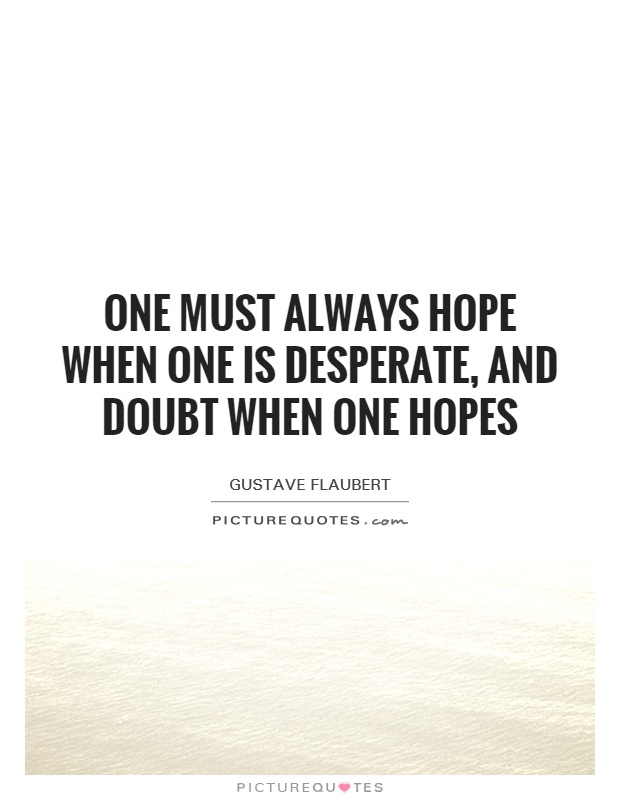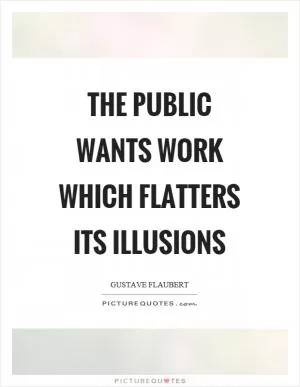One must always hope when one is desperate, and doubt when one hopes

One must always hope when one is desperate, and doubt when one hopes
Gustave Flaubert, the renowned French novelist, is often associated with the idea of realism in literature. His works, such as Madame Bovary and Sentimental Education, are known for their detailed and unflinching portrayal of human emotions and experiences. In the context of the quote “One must always hope when one is desperate, and doubt when one hopes,” Flaubert’s writing can shed light on the complexities of human nature and the constant struggle between hope and doubt.Flaubert’s characters often find themselves in desperate situations, grappling with their desires and dreams in a world that is often harsh and unforgiving. Emma Bovary, the protagonist of Madame Bovary, is a prime example of this. She is a woman trapped in a loveless marriage, yearning for passion and excitement. Her desperation leads her to make reckless decisions, ultimately leading to her downfall. In Emma’s case, hope becomes a dangerous force, blinding her to the reality of her situation and driving her to make choices that have devastating consequences.
On the other hand, doubt plays a crucial role in Flaubert’s works as well. His characters are often plagued by uncertainty and skepticism, questioning their own beliefs and motivations. Frederic Moreau, the protagonist of Sentimental Education, is a prime example of this. He is a young man searching for meaning and purpose in a world that seems indifferent to his desires. Frederic’s constant doubts and insecurities prevent him from fully committing to his dreams, leading to a sense of disillusionment and dissatisfaction.












 Friendship Quotes
Friendship Quotes Love Quotes
Love Quotes Life Quotes
Life Quotes Funny Quotes
Funny Quotes Motivational Quotes
Motivational Quotes Inspirational Quotes
Inspirational Quotes